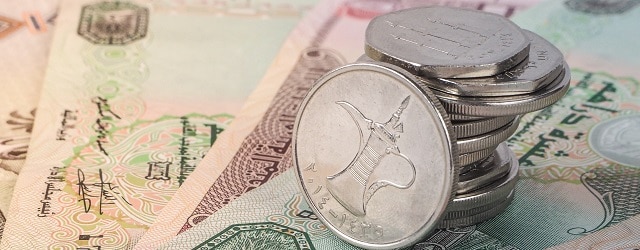It’s up to Middle East banks to help their corporate clients improve speed and transparency.

The biggest liquidity management challenge for companies in the Middle East is an incomplete view of overall cash positions, says Manoj Menon, senior managing director and global head of transaction banking at First Abu Dhabi Bank (FAB). This is aggravated by nonuniform treasury structures and management policies, and suboptimal account structures. But with an assist from regulators and payment-service providers, companies’ mastery of their cash flow is increasing. FAB is Global Finance’s winner for Best Bank for Liquidity Management in the Middle East.
“Digitization is already being used by regulators to gain insight into payment flows for both statistical and regulatory purposes,” says Taisir Al-Marhoun, chief operating officer of corporate banking at Samba Financial Group. “The purpose of payment codes, which are mandatory for payments to and from certain countries in the region, is to provide information to both the banks and the regulators regarding the underlying reasons for the payment flows.”
He says merchant category codes in card payments similarly clue in banks and card programs about business segments experiencing fast growth, so these areas can be targeted. While enterprise resource planning (ERP) systems help companies plan their cash flows, based on their accounts receivable and payable, the systems can also help companies hedge their currency exposures.
“Payment-service providers like Swift are now coming out with new products like Swift gpi, which provides greater transparency over the charges levied by each intermediary, the time taken by each intermediary to process the payment and the current status of the payment,” says Al-Marhoun. “As a bank, we have to keep the customer informed of these developments and develop interfaces to provide this information electronically to them.” Corporate clients of Arab Bank, the Best Bank for Cash Management, can log into ArabiConnect—an online platform that allows them to manage all of their accounts, payments and trade finance transactions in the one location.
Money market funds are proving to be a favorable investment alternative for investors, compared to other liquid investments such as saving accounts. The Best Provider of Short-Term Investments/Money Market Funds, Banque Misr’s Yom b Yom fund reached EGP 13.9 billion in September 2019 having grown exponentially following rate cuts by the Central Bank of Egypt in 2018 and 2019.
“Through digital solutions, Middle East banks can help their corporate clients obtain visibility into all their accounts and balances across all their banking relationships—thus making optimal use of all their cash holdings,” Menon explains. “Working together with corporates, banks will be able to advise and design an optimal bank account structure that will help to eradicate the occurrence of trapped and unutilized cash in the business.” FAB built the first global cash-position mobile application in the Gulf Cooperation Council market in April 2019, allowing corporates to view their balances in various currencies across their accounts with FAB and its partner banks. Information on deposit placement and maturity are available in the same application.
“As a bank, we are investing in building products around digital banking platforms and around cloud-capable microservices and API toolkits,” says Menon. “We are also looking at artificial intelligence and machine learning and intend to work with corporates to provide them with predictive analytics for dynamic cash forecasting and liquidity management.”
Nontraditional payment methods and providers, and a shift from card programs to domestic card clearing, are changing the landscape. Saudi Arabia, for example, recently shifted to mada, the Saudi payment network, for local debit cards for both e-commerce and point-of-sale transactions. “As a bank, we have to help our customers utilize these schemes and benefit from greater efficiency and lower charges by using them,” says Al-Marhoun.
To bring greater flexibility and efficiency to local payments, some countries are also shifting away from value dates and cutoff times toward instant, 24-hour payments. “This will eliminate the difference between account transfers within a bank and local transfers and enable customers to transfer funds to any bank at any time,” Al-Marhoun says.
MIDDLE EAST WINNERS |
|
|---|---|
Category |
Bank |
| Best Overall Bank for Cash Management | Arab Bank |
| Best Bank for Liquidity Management | First Abu Dhabi Bank |
| Best Bank for Payments and Collections | Samba |
| Best Provider of Short-Term Investments/Money Market Funds | Banque Misr |



